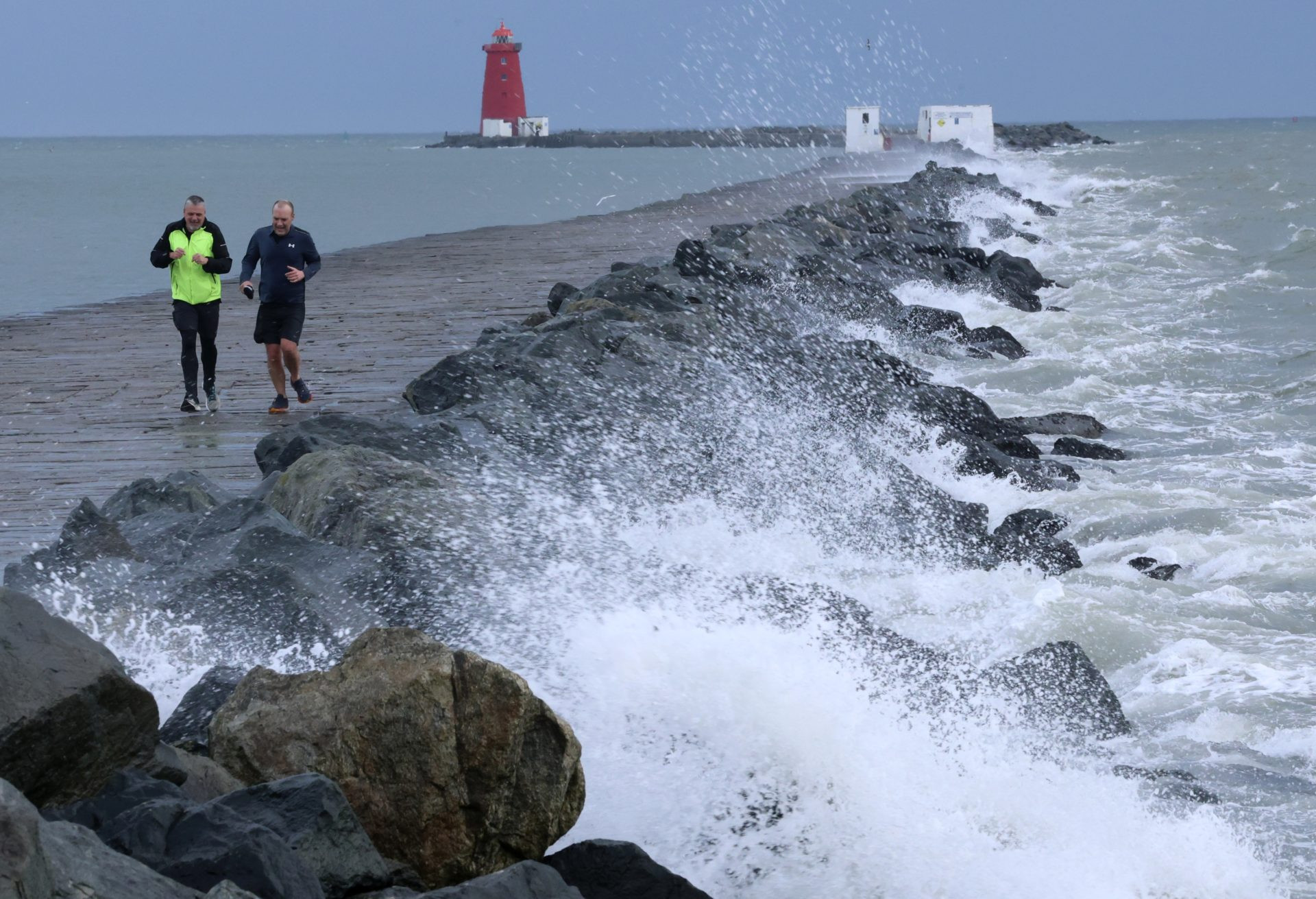Storm Eowyn and the Mystery of Blocked Ears
If you've ever experienced that unsettling feeling of blocked ears on a windy day, you're not alone. As Storm Eowyn unleashes its powerful gusts across the UK, many are reporting this very common phenomenon. The Met Office has issued yellow weather warnings for wind across much of the country, with gusts expected to reach 50 to 60 miles per hour inland, and a significantly higher 60 to 70 miles per hour around coasts and hills. In exposed parts of western Scotland, these gusts may even reach an alarming 80 miles per hour.
The Science Behind Blocked Ears
This uncomfortable sensation is typically caused by changes in air pressure. The Met Office explains that winds themselves are a direct result of pressure differences, originating in high-pressure regions and moving towards areas of low pressure. This pressure fluctuation impacts our ears, which are remarkably sensitive to such changes. Some individuals claim they can sense an approaching storm because their ears become blocked. This is attributed to rapid drops in barometric pressure outside the ear; the internal ear pressure doesn't adjust as quickly, creating an imbalance.
Barotrauma: Understanding the Condition
This phenomenon is medically termed barotrauma. Symptoms can include ear pressure, ear pain, hearing loss, and even dizziness. The culprit is often a blockage in the eustachian tube, the canal connecting the middle ear to the back of the nose. When we have a cold, sinus infection, or allergies, the membranes in our nose swell, obstructing this tube. The effect is worsened by conditions such as tinnitus.
However, it is important to note that barotrauma isn't limited to storms. Any quick altitude or pressure shift—even a simple elevator ride—can lead to this eustachian tube blockage and that familiar feeling of blocked ears. This is nothing to worry about if it's caused by normal air pressure changes.
Quick Fixes for Blocked Ears
If your ears become blocked due to air pressure changes, whether from a storm, windy day, airplane travel, or an elevator, there are usually simple solutions. According to ENT Health, the most effective method is swallowing. Yawning, chewing gum, or sucking on hard candy are also effective.
Another popular technique to equalize ear pressure is the Valsalva maneuver: Pinch your nose, breathe in through your mouth, gently blow against your pinched nose, and swallow. You might hear a “pop” in your ears—a sign that the pressure has been equalized and the blockage has relieved.
When to Seek Professional Help
If your blocked ears are accompanied by pain, or the issue persists despite trying these remedies, it's vital to seek medical advice. If the blockage stems from a cold or allergies, decongestants or nasal sprays might help shrink swollen nasal membranes, opening the eustachian tube. However, consult your GP or pharmacist before using these medications; they shouldn’t be used long-term. Persistent blocked ears, particularly if accompanied by ear pain, warrant a visit to your GP for a proper check-up and appropriate guidance. The NHS is urging people to take precautions for their health as the weather is set to get wild. Remember that preventative measures, such as using medication for allergies or cold, can go a long way in reducing the chances of suffering from blocked ears.
Weather Warnings and Your Well-being
Storm Eowyn is predicted to cause significant travel disruption, potentially affecting roads, railways, airports, and ferries. The Met Office has issued warnings for various regions across the UK, including yellow weather warnings for 'very strong' winds in several areas. Gusts of more than 80mph are expected in some locations which may cause power cuts, travel disruption and damage to buildings. Forecasters describe a “very deep and very powerful system” developing over the Atlantic, bringing potentially dangerous wind speeds to UK shores. A “weather bomb” is set to bring strong winds, heavy rain and some snow when it reaches the UK later this week. The Met Office has emphasized the importance of staying informed about the latest weather updates and taking necessary precautions to safeguard your health and safety. Stay safe and be aware of the potential hazards and what you can do to stay healthy during this very active weather period.
Riding Out the Storm: A Guide to Ear Health During Windy Weather
Remember, while blocked ears during windy weather are often temporary and harmless, persistent problems or accompanying pain are a sign to seek medical attention. Staying informed about weather warnings and taking necessary precautions can minimize the impact of extreme weather on your health and overall well-being. The wind is expected to batter many regions and the strongest winds of the winter so far are expected in Scotland and Northern Ireland. Staying safe and informed will keep you healthy during this upcoming period.


















